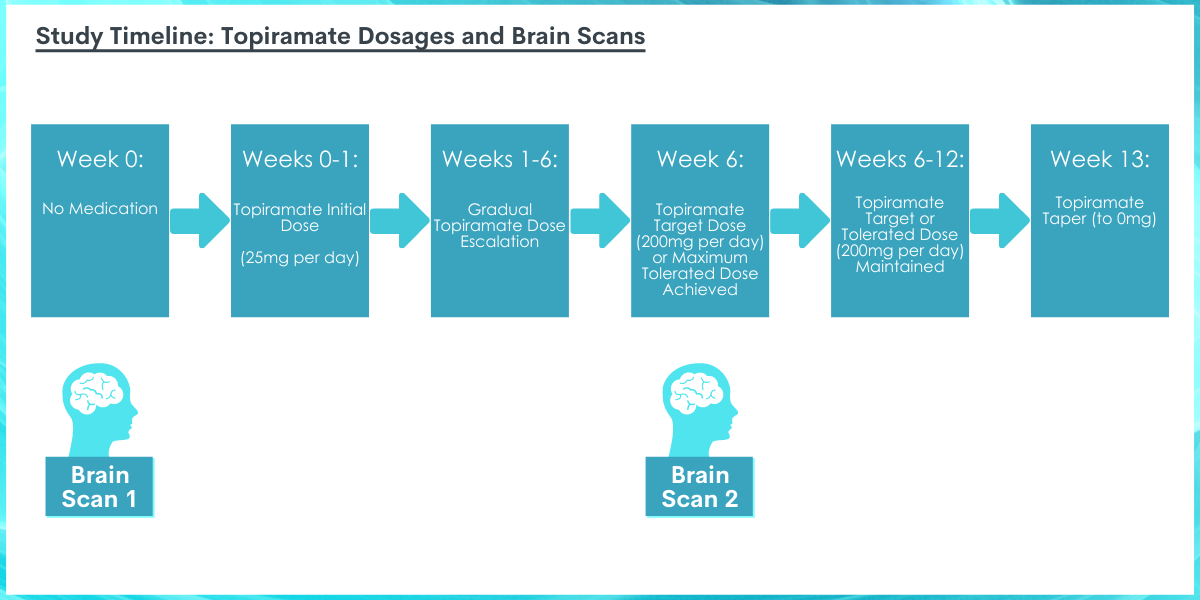Are you struggling with alcohol cravings? Topamax, an FDA-approved anti-seizure drug, may be the answer you’ve been searching for. In this article, we explore the science behind Topamax, the evidence that suggests it helps with alcohol cravings, and the potential side effects. So, if you’re looking for a new way to manage your alcohol cravings, read on to learn more about Topamax.

Contents
- Does Topamax Reduce Alcohol Cravings?
- Top 6 Frequently Asked Questions
- Does Topamax Help With Alcohol Cravings?
- What is Topamax?
- How Does Topamax Work?
- What are the Possible Side Effects of Topamax?
- How Effective is Topamax for Treating Alcohol Cravings?
- Who Should Not Take Topamax?
- What Should I Know Before Taking Topamax?
- Topiramate (Topamax) For Alcohol Addiction | Dr John Umhau, Addiction Specialist
Does Topamax Reduce Alcohol Cravings?
Topamax, also known as topiramate, is a drug used to treat epilepsy and migraine headaches. It is also used as an off-label treatment for alcohol use disorder (AUD). Some studies have shown that Topamax may help reduce alcohol consumption and cravings for alcohol.
Topamax works by reducing the activity of the neurotransmitters glutamate and GABA. These neurotransmitters are involved in the reward pathway in the brain and can influence a person’s desire for alcohol. By reducing their activity, Topamax may help reduce cravings for alcohol.
In addition, Topamax may reduce the rewarding effects of alcohol, making it less desirable for certain individuals. This may also help reduce cravings for alcohol.
How Does Topamax Work?
Topamax works by targeting the neurotransmitters glutamate and GABA. Glutamate is involved in the reward pathway in the brain and can influence a person’s desire for alcohol. By reducing its activity, Topamax may help reduce cravings for alcohol.
In addition, Topamax may reduce the rewarding effects of alcohol, making it less desirable for certain individuals. This may also help reduce cravings for alcohol.
What are the Side Effects of Topamax?
Like all medications, Topamax has potential side effects. The most common side effects include dizziness, drowsiness, fatigue, loss of appetite, nausea, and tingling in the hands and feet.
More serious side effects include changes in vision, trouble concentrating, confusion, and difficulty speaking. If any of these side effects occur, a doctor should be consulted immediately.
Does Topamax Work for Everyone?
Topamax may not be effective for everyone. Some studies suggest that it is more effective in men than women, and in people with mild to moderate alcohol use disorder.
It is important to note that Topamax is not a cure for alcohol use disorder and should not be used in place of evidence-based treatments such as cognitive-behavioral therapy (CBT) and medications such as naltrexone.
How Do I Know if Topamax is Right for Me?
If you are considering taking Topamax to help reduce alcohol cravings, it is important to speak with your doctor. Your doctor will be able to determine if Topamax is right for you and can also help you find other treatments that may be more effective.
What Other Treatments are Available?
In addition to Topamax, there are a number of evidence-based treatments for alcohol use disorder. These include cognitive-behavioral therapy (CBT), medication such as naltrexone and acamprosate, support groups, and lifestyle changes.
It is important to note that no single treatment is right for everyone. Your doctor can help you find the best treatment for you.
Top 6 Frequently Asked Questions
Does Topamax Help With Alcohol Cravings?
What is Topamax?
Topamax is the brand name for an anti-seizure medication called topiramate. It is a prescription drug that is used to treat epilepsy and can also be used to treat migraine headaches and other neurological disorders. It is believed that Topamax can also be used to help reduce alcohol cravings.
How Does Topamax Work?
Topamax works by affecting the chemicals in the brain that are involved in alcohol cravings. It is believed that Topamax increases levels of gamma-aminobutyric acid (GABA), a neurotransmitter that acts on the reward centers of the brain. By doing this, Topamax can reduce the pleasure associated with drinking alcohol and help reduce cravings.
What are the Possible Side Effects of Topamax?
The most common side effects of Topamax include dizziness, drowsiness, fatigue, and difficulty concentrating. It can also cause digestive issues such as nausea, vomiting, and diarrhea. Other potential side effects include weight loss, depression, anxiety, and suicidal thoughts.
How Effective is Topamax for Treating Alcohol Cravings?
Studies have shown that Topamax is effective for reducing alcohol cravings in some patients. However, it is important to note that Topamax is not a “cure” for alcoholism and that it should be used in conjunction with other therapies, such as behavioral therapy and counseling.
Who Should Not Take Topamax?
Topamax is not recommended for pregnant women or people with certain medical conditions, such as kidney or liver disease, glaucoma, or a history of depression or suicidal thoughts. It is also not recommended for people who are taking other medications, such as certain antibiotics or antidepressants.
What Should I Know Before Taking Topamax?
Before taking Topamax, it is important to talk to your doctor about any other medications you are taking and any health conditions you have. You should also discuss any potential side effects with your doctor. It is also important to note that Topamax is not a substitute for therapy and should not be used as a “quick fix” for alcohol cravings.
Topiramate (Topamax) For Alcohol Addiction | Dr John Umhau, Addiction Specialist
In conclusion, it is clear that Topamax can be a helpful medicine for those who are struggling with alcohol cravings. It can help reduce the frequency and intensity of cravings, and may even help those who are trying to abstain from drinking altogether. While results may vary from person to person, it is worth exploring Topamax as an option for those looking for a solution to their alcohol cravings.

